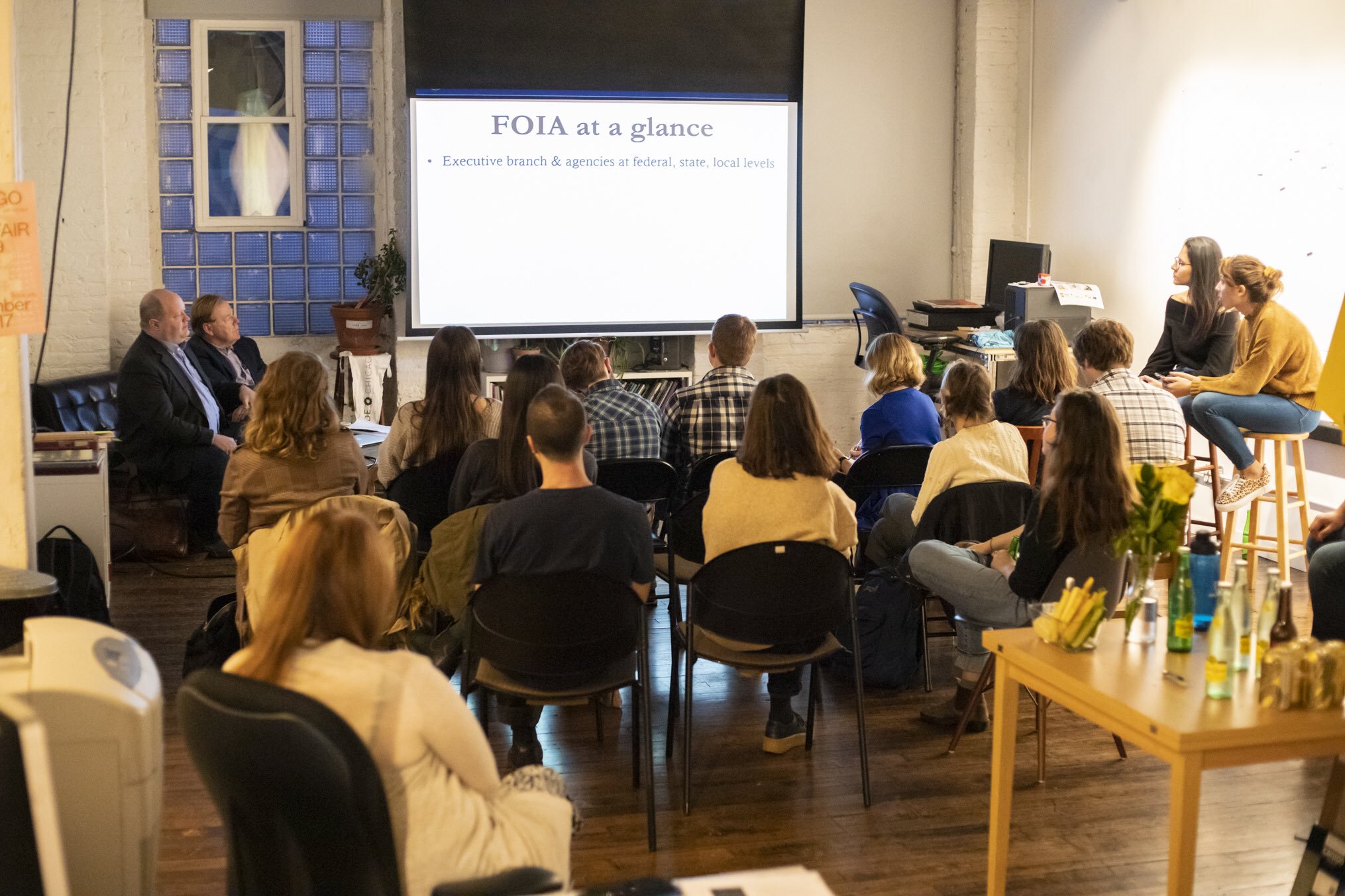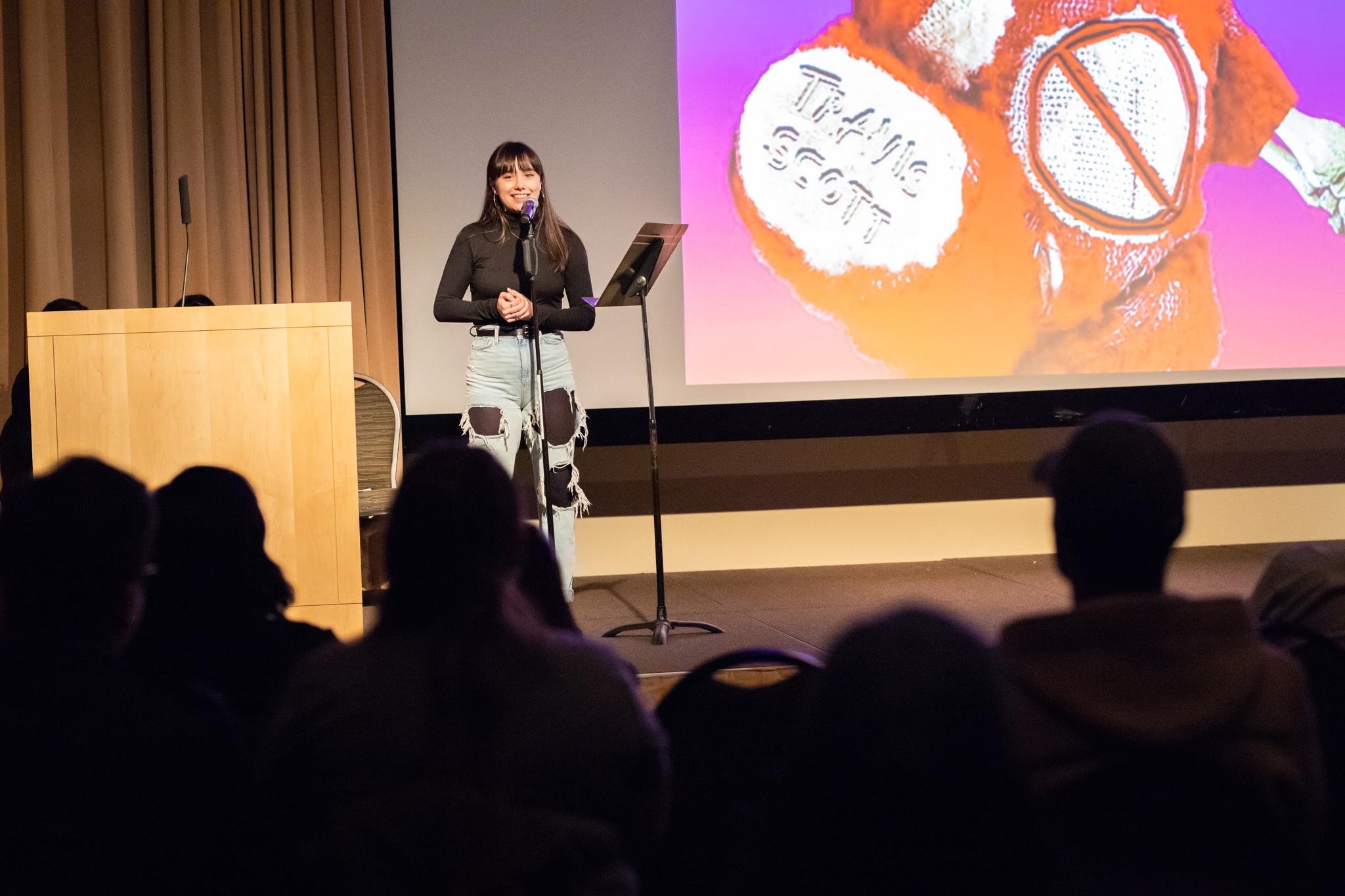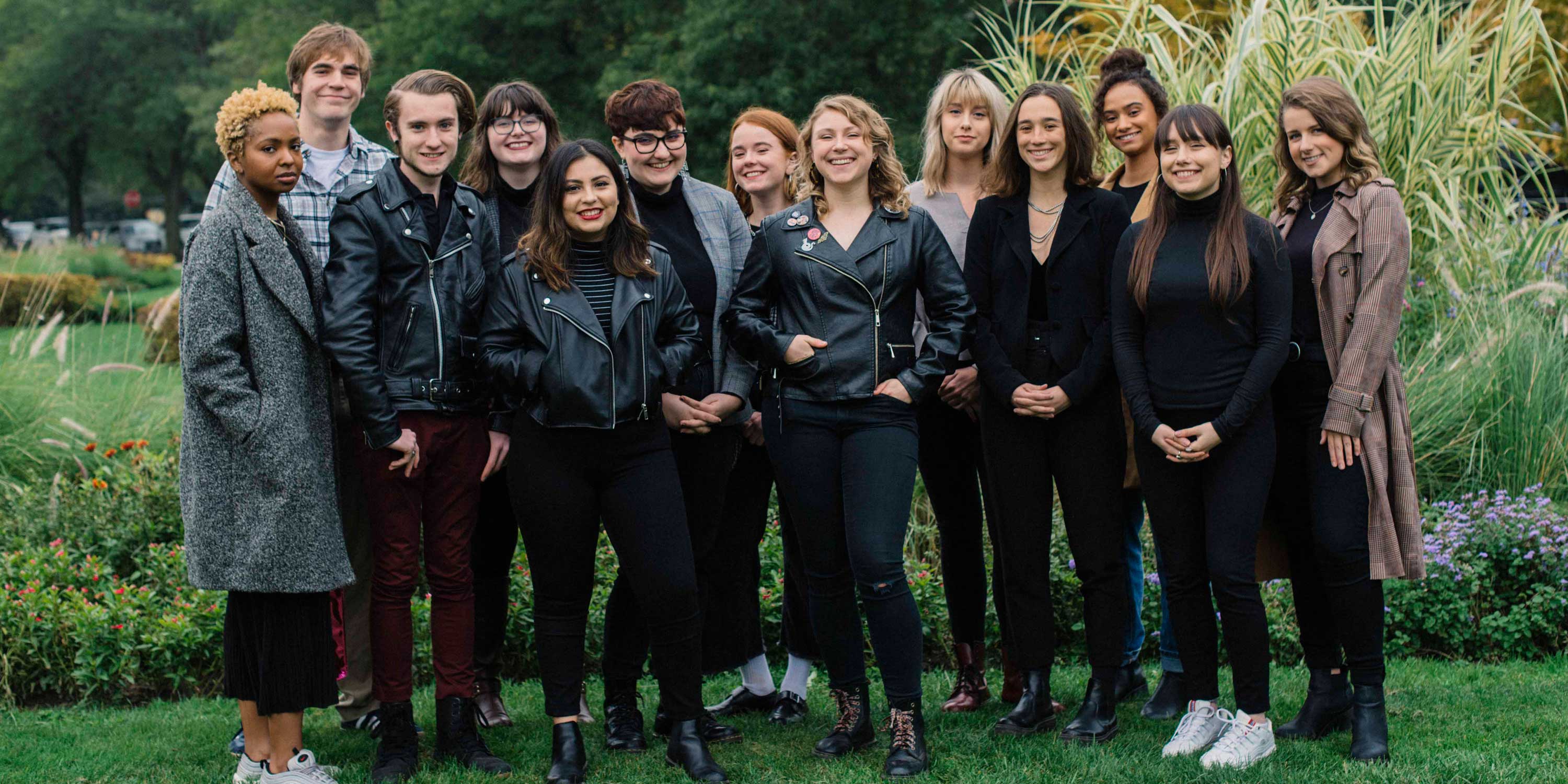In 2015, 14 East magazine began as a pipe dream in 14 East Jackson Boulevard, the Daley Building and home to DePaul’s journalism program. The university had (and still has) a dogged newspaper, two successful radio stations and strong TV program. However, there wasn’t a space to publish long-form, multimedia-driven, magazine-style stories online.
That fall, our founding members and current advisor, Amy Merrick, met weekly to dream of what the magazine could be: vibrant, collaborative, media-focused, transparent and community-centered.
Today, much of what felt like dreams four years ago (like award-winning reporting, comprehensive investigations and multimedia-driven projects) have become fundamental to our work. And since we launched on May 20, 2016, we’ve expanded our scope to areas that weren’t even in our original purview.

In October, we hosted a Public Newsroom about filing Freedom of Information Act (FOIA) requests at Latitude, a digital lab in West Town. (Jesus Montero, 14 East)
Over the past (nearly) four years, events, community listening and creative storytelling have also become an essential part of our foundation. As concerns about credible news and media distrust arise, we’ve started to rethink what we do and how we do it, opening our reporting process to the public and inviting our community in.
We began hosting events (40, to be exact, since we first launched), which have ranged from workshops and professional development open to the public to live storytelling events and community listening sessions. And in 2018, we began collaborating with DePaul’s chapter of the Society of Professional Journalists and the groundbreaking journalism newslab City Bureau to bring their Public Newsroom series to DePaul.
This year, we worked with 92 DePaul students to test their tap water for unsafe lead levels, publishing a 12-story issue based on what we learned and community questions that arose (and received a grant from Illinois Humanities and the MacArthur Foundation to fund this project).

Collective note taking at our community conversation for our Water Testing Project. (Melody Mercado, 14 East)
In October, during our coverage of the 2019 Chicago Teachers Union Strike, we published daily, visiting 5 school picket lines on the South and West sides and 7 marches/rallies. We spoke with more than 40 CPS staff, students and protesters from 18 different schools.
Throughout it all, we have received 48 awards — 21 in the past year — for our reporting. Twenty-eight of those were national awards and 17 won first place. Most recently Cody Corrall won the national student award for Online Opinion & Commentary from the Society of Professional Journalists. Madeline Happold won third place for Best Multimedia Breaking News Story category for the national Pinnacle awards. Our podcast, 14 Speaks, received an honorable mention for the Best Podcast category of the national Pinnacle awards.

Special Event Planner Mikayla Rose Price reading her story at our live storytelling event in May. (Jesus Montero, 14 East)
We have done all of this at little to no cost (in fact, we spent less than $300 on the 40 events we have hosted so far). However, as we look forward to the coming year and the projects we have in mind, much more would be possible if we have more funding for our work — and we could improve the work we are doing, making it more beneficial for everyone involved.
This is where we turn to you, on Giving Tuesday (or News Day as our friends a ProPublica like to call it) and throughout the rest of the holiday season.
In 2020, we hope to further expand our reporting on communities that often go undercovered, including those on the South and West sides. We want to hold more listening sessions to learn more about our community, and we plan on thinking more creatively about how we tell stories.
Our current budget is $1,000 from the College of Communication, plus website hosting and domain registration costs of about $250 a year. Over the next eight weeks, we are hoping to raise $5,000 to further fund our work. This would include costs for our engagement projects, events, staff reporting expenses, SoundCloud storage, annual anthology and award submissions.
Today, we are launching our fundraising campaign, which will run through January 31, 2020.
Throughout the holiday season, I hope you will take a moment to learn more about what we do and why we do it. If it stands out to you, and you want to invest in student-led community journalism, I hope you will contribute to our campaign.
For more information about 14 East, please read our first report, Year in Review 2019.
Click here to contribute to our fundraising campaign.
Thank you,
Marissa Nelson, Editor-in-Chief
Header photo by Annie Zidek




Our Favorite Stories from 2019 – Fourteen East
27 December
[…] month, we launched our first online fundraising campaign (which you can still donate to). As we prepared for it, we found ourselves reflecting on the work […]